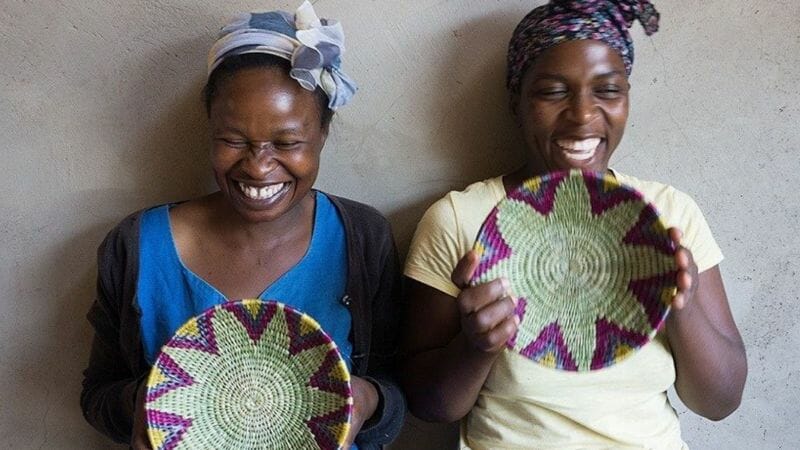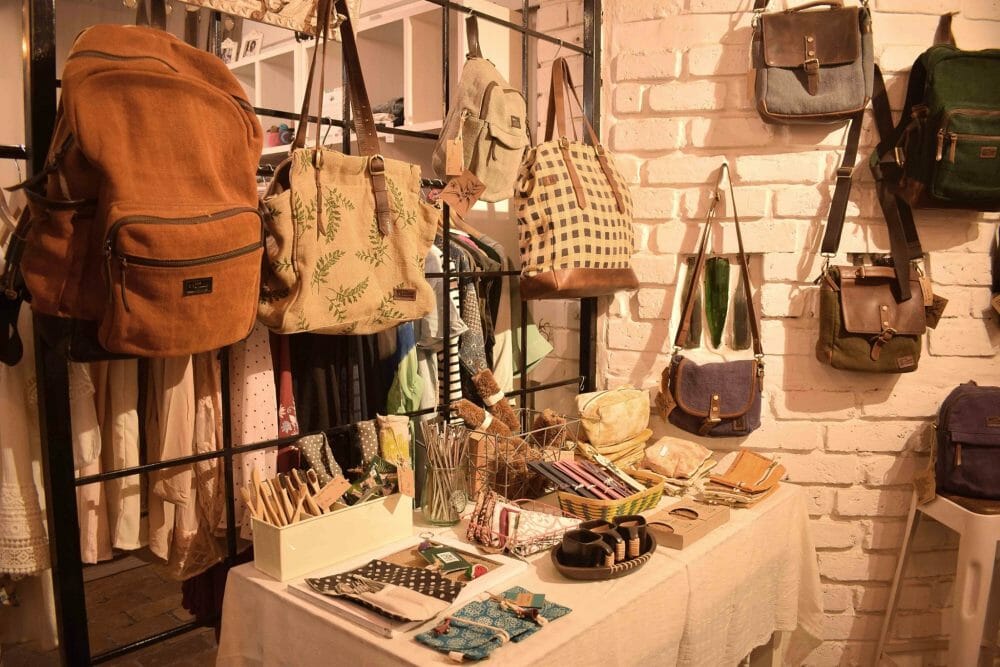
Our goal is to be a one stop place for design conscious products that are sustainable and made with least negative impact on the ecology.
Rema Sivaram
Rema Sivaram – Co-Founder of Ethic Attic by Fairkonnect
India- 2021 WE Empower Finalist, Asia-Pacific
Ethic Attic by Fairkonnect is a Fair Trade organization based in India that brings local artisan goods to the global market. Working with independent weavers, craftsmen and artisans, Ethic Attic assists them through providing design intervention, product development, market readiness as well as giving the market platform space to sell their goods. Their recent social initiative, Project Hennu, trains women from the slums of urban Bangalore in basic sewing skills, pattern making and production management; initially, Project Hennu was started to help create masks for the Covid-19 pandemic, but has now grown into a full-scale business for exporting quality garments around the world.

Rema Sivaram and Ethic Attic
In partnership with fellow co-founder Pradeep Krishnappa, Rema Sivaram founded Ethic Attic through Fairkonnect, a parent organization that works to bridge the gap between Fair Trade buyers and craftsmen, in 2016. Sivaram holds a Management Degree from Symbiosis Institute of Management Studies, which has helped her to push Ethic Attic to its greatest heights and capabilities. Also a recipient of the Fellowship from Earthwatch Institute India, where her work is focused on ‘Social Entrepreneurship and Skill Development to Support Environmental Conservation and Livelihood’, Sivaram works diligently to incorporate and bring to life the UN SDGs within every aspect of Ethic Attic.

A new way to work from home
Project Hennu works with women from the urban slums of Bangalore by providing them with training, classes, workshops and employment opportunities. In the utmost support of UN SDG 5 (Gender Equality), Project Hennu has employed over 20 women and the weaver groups in the country employ 70% women who are able to work from home; and the ability to work from home while still being able to generate income for their families has revolutionized their livelihood to being self-sustained. Many of the women who have participated in these workshops become employed by Fairkonnect and many others are quick to find employment by Sivaram and her team.
Worker welfare
Ethic Attic is a Fair Trade certified organization which focuses on the welfare of people in the workplace and providing fair wages. Even in the face of the Covid-19 pandemic, Ethic Attic was able to find alternate work for all of the women working within their company by providing training to make face masks. Throughout the Covid-19 pandemic the women were able to make over 2,000 masks for both the domestic and international markets. Even in tough times, Ethic Attic supported UN SDG 8 (Decent Work and Economic Growth) by ensuring that their workers were still able to have a livelihood and provide for their families and communities.
Natural solutions for a sustainable future

Using a variety of techniques and materials, Ethic Attic is able to incorporate UN SDG 12 (Responsible Production & Consumption) by using recycled wood to make furniture, zero waste tags made from cotton waste as well as having all products being made from organic and natural materials. The fabrics used to produce Ethic Attic goods are made from cotton and other natural, quickly regenerating materials because these types of materials reduce the water and carbon footprint of these goods. Also the dyes used to color garments and other goods are made from vegetables and fruits which reduces pollution and water consumption. Overall, one of the main goals of Ethic Attic is to maintain a “zero-waste lifestyle that ensures they consume responsibly and reduce their waste to the bare minimum”.
“At Ethic Attic, we have always believed our work to impact people and the planet, hence always trying to make and stock products that are people and planet friendly. We have been believers of Fair Trade which interlaced itself with the sustainable development goals.”
Rema Sivaram
The WE Empower UN SDG Challenge is a first of its kind global competition for women entrepreneurs who are pushing the UN Sustainable Development Goals and leading innovation in sustainability and climate change through their businesses. This Contributing Series highlights finalists of the Challenge whose work demonstrates how business models and social entrepreneurship can drive global impact.
by Ella Schneider
